Finding the words Finding the words Finding the words
UW Press celebrates "Aiiieeeee!" and a 50-year legacy of Asian American Literature.
By Shin Yu Pai | Illustration by Julia Kuo | Viewpoint Magazine
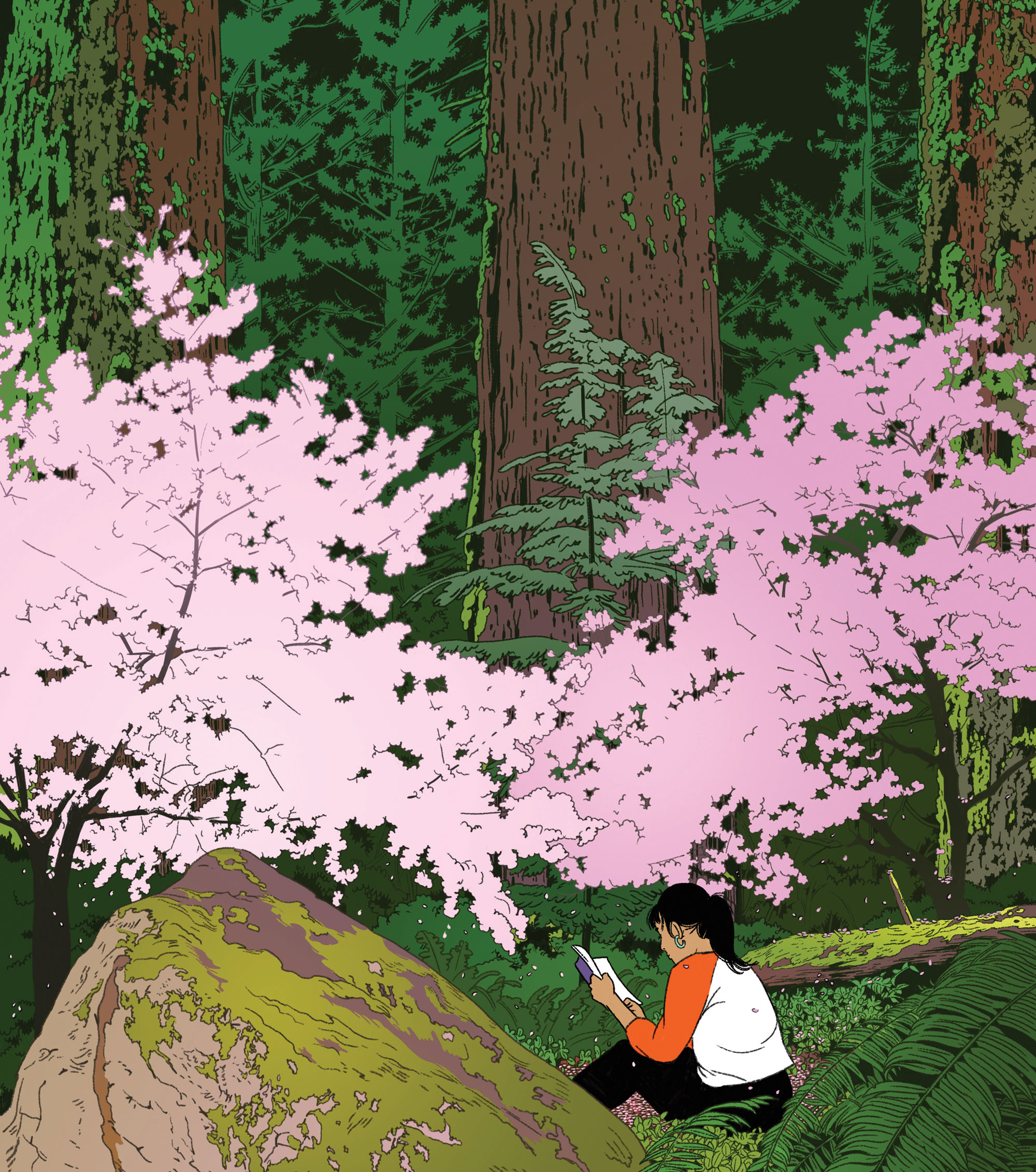
In 1970, when Shawn Wong was 19 and a student at the University of California at Berkeley, he had to go hunting for Asian American literature on the street.
An English professor told him no such literature existed. But Wong and his friends and fellow writers, Jeffery Paul Chan, Frank Chin and Lawson Fusao Inada, knew that wasn’t true. They had connected over a shared quest to discover Asian American literature. Their dogged search through Bay Area thrift stores and a handful of literary anthologies led them to 14 writers whose work had been largely ignored by mainstream publishers.
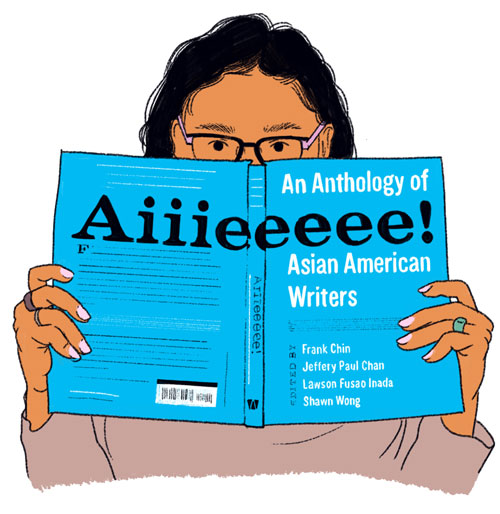
As the young editors continued to refine their list of work by overlooked authors, they decided to create an anthology. Chan brought their fledgling manuscript into the Asian American literature class he was teaching at San Francisco State University, while Wong—who would later join the faculty at the UW—used the material in a class he was teaching at Mills College in nearby Oakland. Eventually, the first-time editors published that group of 14 authors, which included UW alumnus John Okada, ’47, ’51, as well as now well-known wordsmiths Toshio Mori, Oscar Peñaranda and Diana Chang. Their radical undertaking culminated in “Aiiieeeee! An Anthology of Asian-American Writers.”
This year, “Aiiieeeee!” turns 50. First published by the Howard University Press in 1974, the book was republished in 2019 by the University of Washington Press. The new edition holds a foreword by Tara Fickle, associate professor of Asian American studies at Northwestern University, who offers the current generation of readers context about the era and people involved in bringing the book to life. Fickle studied Wong’s correspondence with the writers and his fellow editors. She also looked at the production notes for the book to understand how the collection evolved through the editorial process and what the stakes were for the editors. Fickle’s research into Wong’s archives unearthed the editors’ own reflections on their project. In a letter to Wong, for example, Inada envisioned the anthology’s success. “Our place in history will have the secure feel of real beginnings. After a while, people will refer to us as the fathers … the cornerstones of our culture.”
“Our place in history will have the secure feel of real beginnings. After a while, people will refer to us as the fathers ... the cornerstones of our culture.”
Lawson Fusao Inada
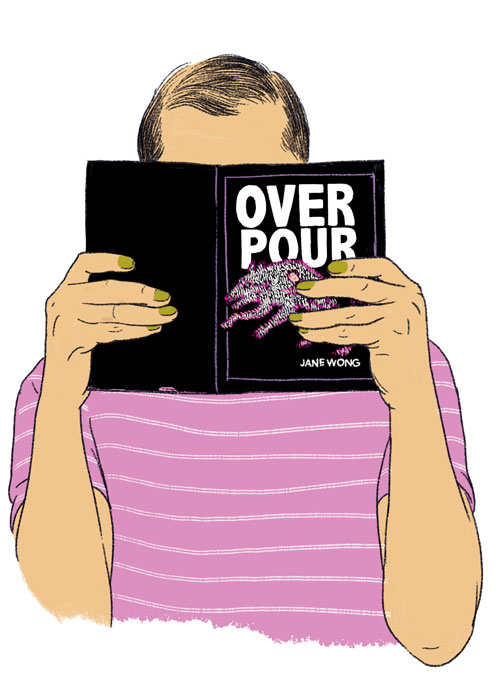
Inada’s words held true. “Aiiieeeee!” became a foundational text in Asian American Literature, and its editors were credited for both rescuing stories out of time and opening readers to a diversity of voices and experiences from the Asian American community. The anthology’s 14 pieces range from the 1940s to the 1970s, ending in a time when activists and scholars were challenging stereotypical representations and expectations of the Asian American voice and experience to highlight neglected perspectives and more freshly define the culture.
Author and activist Ishmael Reed helped the four writers and would-be editors find their way to the Howard University Press. The Howard editors “were the first to realize the legitimacy of Asian American literature,” Wong says. “It was one of the first 10 books on their list. And it was the only one that wasn’t an African American title.”
Reed dubbed Wong and his friends the “Four Horsemen of Asian-American Literature” and encouraged their efforts to provoke, develop and define an Asian American literary canon. Right away, the book garnered positive reviews in Rolling Stone and The New York Times and advanced Wong and his collaborators along their paths as writers and literary activists.
Today, the UW is steeped in the legacy of their groundbreaking work. A wealth of modern Asian American literary voices includes UW alumni and scholars who studied Asian American literature, English literature and ethnic cultural studies.
Wong joined the UW faculty in 1984, after teaching at Mills College, UC Santa Cruz and San Francisco State. He is currently a professor in the English department and has served as chair of English, director of the Creative Writing Program, director of the University Honors Program and faculty in Cinema & Media Studies.
“The UW has always been a place where you can reinvent yourself,” says Wong. “It’s large enough that I could try different things and bring my perspective to lots of different fields.”
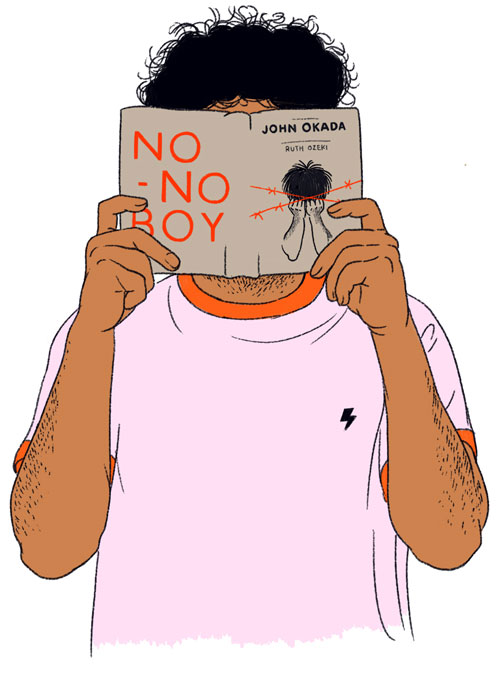 Alongside Wong’s legacy, the University of Washington Press has its own long history of engaging contemporary scholars in republishing and recontextualizing Asian American classics for new generations of readers. It also has a long-standing commitment to supporting Asian American scholarship dating to the early 1970s when editor-in-chief Naomi Pascale saw an opportunity to position the press at the forefront of the discipline. In 1973, the press republished Filipino novelist Carlos Bulosan’s “America Is in the Heart.” Over her decades-long career at the UW Press, Pascale acquired many other titles in this area, including Jade Snow Wong’s “Fifth Chinese Daughter” and Janice Mirikitani’s “Awake in the River and Shedding Silence.”
Alongside Wong’s legacy, the University of Washington Press has its own long history of engaging contemporary scholars in republishing and recontextualizing Asian American classics for new generations of readers. It also has a long-standing commitment to supporting Asian American scholarship dating to the early 1970s when editor-in-chief Naomi Pascale saw an opportunity to position the press at the forefront of the discipline. In 1973, the press republished Filipino novelist Carlos Bulosan’s “America Is in the Heart.” Over her decades-long career at the UW Press, Pascale acquired many other titles in this area, including Jade Snow Wong’s “Fifth Chinese Daughter” and Janice Mirikitani’s “Awake in the River and Shedding Silence.”
When Nicole Mitchell became publisher of the press in 2012, she led the redesign and refresh of its Asian American classics series and invited contemporary writers and scholars to develop introductions for these new editions. The UW Press also has published titles from UW faculty across disciplines. “Becoming Nisei,” by professors Lisa Hoffman in the School of Urban Studies and Mary Hanneman, ’91, of the School of Interdisciplinary Arts and Sciences, looks at Japanese Americans in Tacoma before World War II. Professor Stephen Sumida’s “And the View from the Shore” explores the literary traditions of Hawai’i. The press also has supported prominent Northwest-based Asian American writers including Frank Abe, Peter Bacho, ’74, and Cindy Domingo.
In 2020, Shawn Wong established the Shawn Wong Book Fund at the UW Press to recover forgotten titles, like Louis Chu’s “Eat a Bowl of Tea,” and bring them back into print for the wider public. The newest title in Wong’s series is Willyce Kim’s “Dancer Dawkins and the California Kid”—the first Asian American lesbian novel.
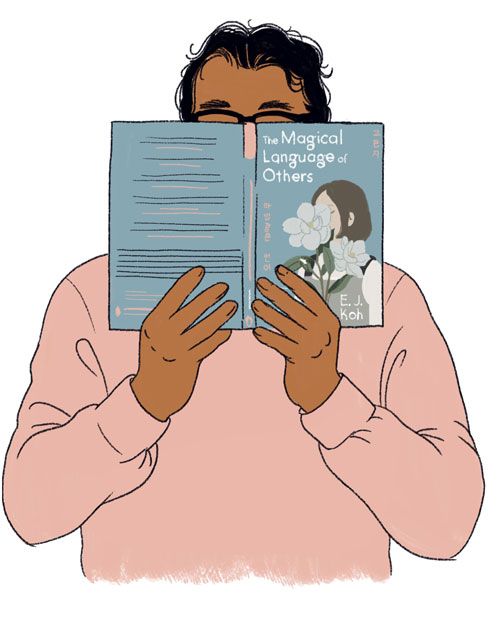
Rising scholars and talented writers are drawn to the UW’s English Ph.D. program. Poet and writer E.J. Koh, ’23, won the Washington State Book Award for her memoir, “The Magical Language of Others.” Her novel, “The Liberators,” was released last fall. At the UW, Koh studied Korean American literature, history and film. Rita Banerjee’s, ’06, recent contemplation on female cool, “The Female Gaze,” was published in “The Best American Essays” last year. And in her new memoir, “Meet Me Tonight in Atlantic City,” Jane Wong, ’16, writes of finding in the literature of other Asian American artists ways to tell her own story.
Edmond Chang, ’12, an associate professor of English at Ohio University, describes his time in UW’s English Department as one of the most formative and generative. “I looked to my peers, mentors and faculty of color not only for community and guidance, but more importantly, for showing me that it could be done. That I could belong and succeed in the classroom, the profession and in the world,” he says. “Now, as a queer Asian writer, scholar, mentor and tenured professor, I try to honor the trails they blazed and to try to create a few of my own.”
“‘Aiiieeeee!’ was entirely unique in emphasizing the political potential of Asian American literature, and this is why we’re still talking about it today.”
Tara Fickle
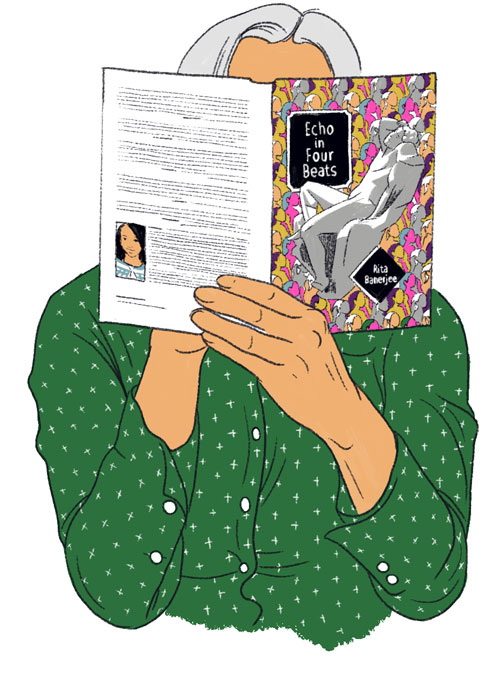 Despite receiving positive reviews upon its release, “Aiiieeeee!” drew detractors. The book was criticized for neglecting women authors and for narrowly defining Asian Americans as those of Japanese, Chinese or Filipino descent, leaving out a world of Asian backgrounds including Korean, Native Hawaiian, Pacific Islander, Indian and Vietnamese. It has also come under fire for a masculine bravado in the editors’ essays. Tara Fickle addressed the critiques in her forward. “The Preface was a manifesto for Asian American literature. In that sense, it can be read as emblematic of its times and the 1960s and 70s Civil Rights and Anti-War movements which the editors were involved with,” she writes.
Despite receiving positive reviews upon its release, “Aiiieeeee!” drew detractors. The book was criticized for neglecting women authors and for narrowly defining Asian Americans as those of Japanese, Chinese or Filipino descent, leaving out a world of Asian backgrounds including Korean, Native Hawaiian, Pacific Islander, Indian and Vietnamese. It has also come under fire for a masculine bravado in the editors’ essays. Tara Fickle addressed the critiques in her forward. “The Preface was a manifesto for Asian American literature. In that sense, it can be read as emblematic of its times and the 1960s and 70s Civil Rights and Anti-War movements which the editors were involved with,” she writes.
Today is a new day for underrepresented voices, and Asian American literature is flourishing with fresh new voices. The UW’s legacy of hiring Asian American studies faculty like Douglas Ishii, Michelle Liu, Vince Schweitler, Chandan Reddy and Caroline Simpson have contributed to shaping two generations of writers, scholars and teachers. “There’s definitely a large cohort of Asian American scholars at the UW,” says Wong. “If you have Asian American professors teaching in your program, you’ll produce more Asian American Ph.D. candidates.”
In April, the UW Press celebrated the past and future of Asian American literature at a program at Seattle Public Library by showcasing “Aiiieeeee!,” the press’s Classics of Asian American Literature series and books made possible by the Shawn Wong Book Fund. The program will feature Shawn Wong, Eunsong Kim, Bay Area writer Willyce Kim, and poets Yanyi and Ching-In Chen, an associate professor at UW Bothell.
Today “Aiiieeeee!,” is required reading in literature programs around the country. By creating the anthology, the editors nourished a burgeoning literary movement. “‘Aiiieeeee!’ was entirely unique in emphasizing the political potential of Asian American literature, and this is why we’re still talking about it today,” says Fickle. “Alongside its contemporaries and predecessors in African American, Chicano/a, and Native American literature, ‘Aiiieeeee!’ is a testament to how the uplifting of marginalized artistic voices has the power to shape the publishing landscape for generations of writers to come.”